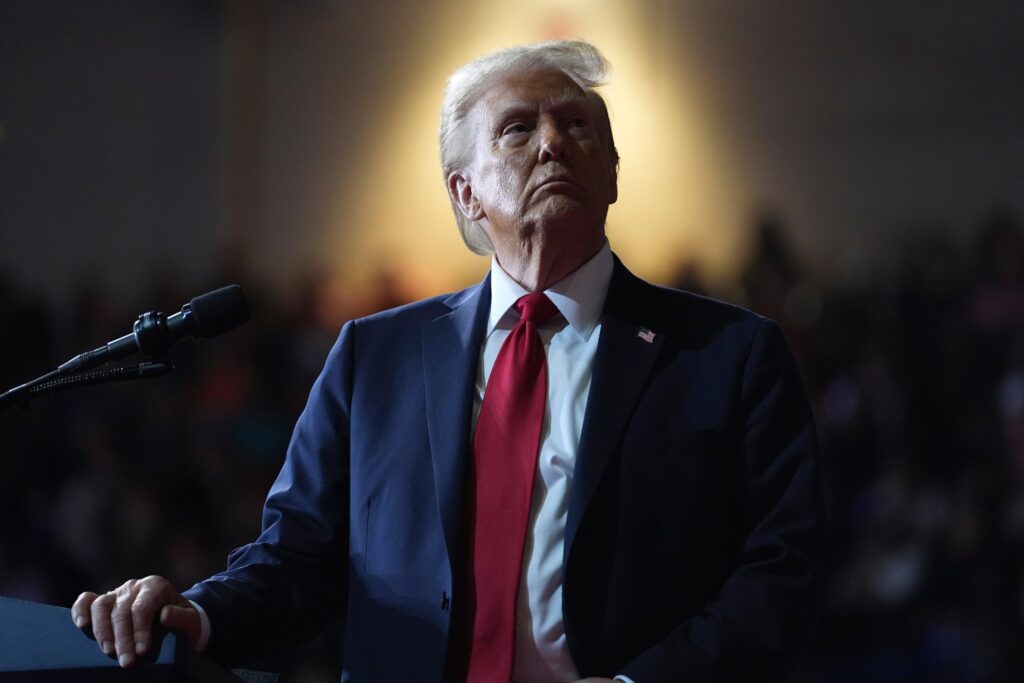In a flurry of speculation and uncertainty, the possibility of a second Trump presidency looms on the political horizon, igniting discussion on the potential implications for various sectors. Among the industries bracing for a potential shift in dynamics is the defense industry, which could face a harder line under a renewed administration. As stakeholders and analysts alike ponder the impact of such a scenario, questions arise about what the future holds for this critical sector.
Brief overview of Trumps defense industry policies
During his first term, President Trump took a tough stance on defense industry policies, emphasizing the importance of American-made products and increasing defense spending. If re-elected, Trump is likely to continue pushing for stricter regulations and increased investment in the defense sector. This could mean a more aggressive approach towards international trade deals and increased pressure on companies to manufacture products within the United States.
In addition, a second Trump presidency could lead to greater emphasis on innovation and technology within the defense industry. Trump has shown support for initiatives that promote technological advancements in defense, such as the Space Force and increased funding for cybersecurity. This focus on innovation could lead to new opportunities for defense contractors to develop cutting-edge technologies and strengthen national security capabilities.
Potential impact of a second Trump presidency on defense contractors
With a potential second term for President Donald Trump, defense contractors could be facing a tougher stance from the administration. Trump has been known to push for cost-cutting measures and renegotiate contracts with defense companies, which could further intensify under a second term. This could lead to increased pressure on defense contractors to deliver on time and on budget, as well as potentially facing more stringent regulations and oversight.
In addition, a second Trump presidency could also mean a shift towards prioritizing domestic production and job creation within the defense industry. This could result in more emphasis on Buy American policies, incentivizing companies to keep jobs in the US and invest in American manufacturing. While this could potentially benefit the US workforce, it may also pose challenges for defense contractors who rely on global supply chains for their operations.
Challenges and opportunities for defense industry under Trumps administration
With the potential for a second term in office, President Trump may take a harder line with the defense industry, presenting both challenges and opportunities for companies in this sector. One of the key challenges could be increased pressure to reduce costs and increase efficiency, as the administration seeks to cut government spending. This could lead to greater competition among defense contractors, pushing them to innovate and find ways to deliver high-quality products and services at lower costs.
On the other hand, a second Trump presidency could also bring opportunities for defense companies to secure lucrative government contracts and expand their businesses. With a focus on strengthening the military and national security, there may be increased funding available for defense projects and programs. Companies that can align themselves with the administration’s priorities and demonstrate their value to the government could thrive in this environment.
Recommendations for defense companies to navigate a second Trump presidency
As a second Trump presidency could potentially mean a harder line with the defense industry, it is important for defense companies to be prepared for any changes that may come their way. Here are some recommendations to help navigate the challenges that may arise:
- Build strong relationships: It is crucial for defense companies to maintain and strengthen relationships with key stakeholders, both within the government and the industry. This will help in navigating any potential policy shifts and maintaining a positive reputation.
- Diversify portfolios: In order to mitigate any risks associated with changes in policy or regulations, defense companies should consider diversifying their portfolios. This could involve expanding into new markets or offering a wider range of products and services.
Final Thoughts
As we look toward the future, the possibility of a second Trump presidency raises questions about the direction of the defense industry. Will we see a shift towards a harder line approach, or will there be continuity in the current policies and practices? Only time will tell. As always, it is important to stay informed and engaged in the ongoing discussions surrounding this critical issue. Keep a close eye on developments and be ready to adapt to whatever changes may come. Thank you for reading.


